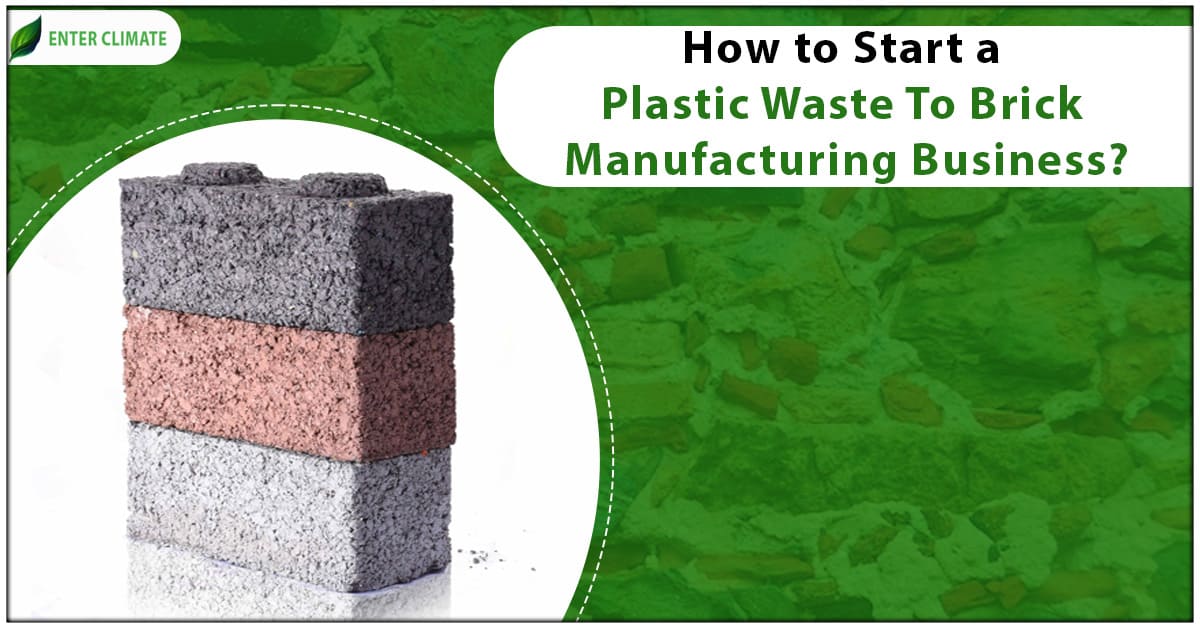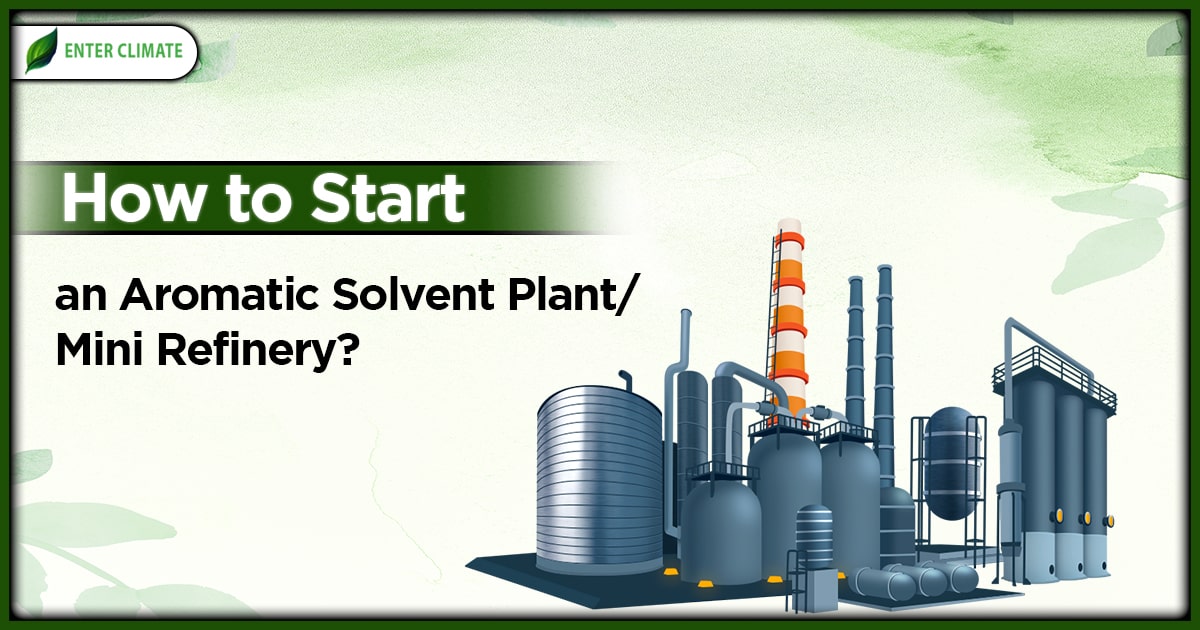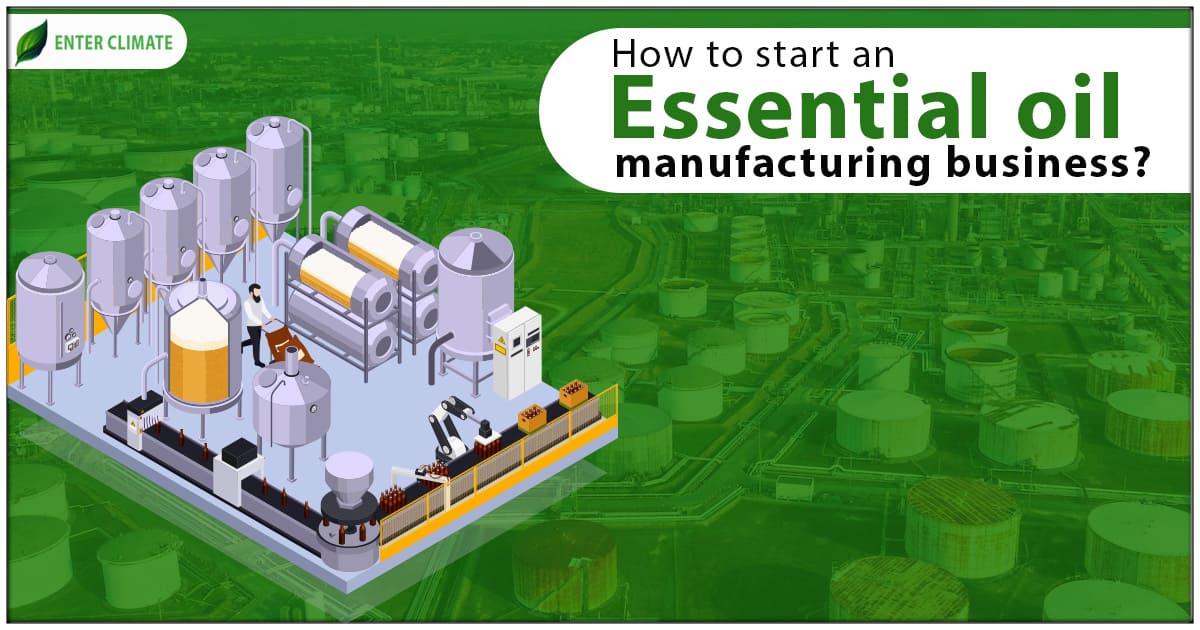How to Start Plastic Waste to Brick Manufacturing Business?
 23 Jun, 2023
23 Jun, 2023 
Traditional construction materials such as bricks, concrete blocks, and tiles are commonly used but can be expensive, making them less affordable for the public. Additionally, these materials need specific compositions to achieve desired properties. Recently, Plastic has emerged as a new engineering material worldwide. It comprises various synthetic or semi-synthetic organic compounds that are flexible and can be moulded into solid objects. Plastic is non-biodegradable and decomposes for thousands of years, leading to land and water pollution. Plastic waste in Municipal Solid Waste (MSW) is rapidly increasing, with usage doubling every ten years. Due to its extensive consumption, polyethene (PE) is one of the most significant contributors to plastic waste. Incorporating Plastic Waste into Brick Manufacturing Business reduces the need for large quantities of clay and helps prevent environmental harm.
Materials and equipment used for plastic sand bricks
The materials used in Plastic Waste to Brick Manufacturing are as follows:
- Sand– Fine sand in construction typically consists of natural river sand.
- Water– Clean water, free from substances such as oils, acids, alkalis, salts, organic materials, or other potentially harmful elements to concrete or steel, is used for mixing and curing concrete.
- Waste Plastic – Plastics have become widely used in various aspects of our lives and require proper management at the end of their lifecycle. Plastic waste is primarily generated from containers, packaging materials, durable goods, and disposable items. Plastics are valued for their specific properties, including versatility, lightweight, hardness, chemical and water resistance, impact resistance, and low cost compared to other materials.
Scope of Plastic Brick Manufacturing Business
Plastic Waste to Brick manufacturing offers potential benefits in construction projects due to their lightweight nature and economic value. Plastic can be used in various forms, such as bricks, tiles, and road pavements, resulting in cost-effective structures with sufficient strength, durability, resistance to water, and reduced material wastage.Plastic bottles contribute significantly to landfill content, with approximately 11% being plastic bottles. Plastic waste includes the need for over 20,000 plastic bottles to obtain one ton of Plastic, an estimated annual production of 100 million tons of Plastic, and the average European discarding 36 kg of plastics per year. Efforts to recycle Plastic are still relatively low compared to consumption.
There are post-compliance requirements set by the Central Pollution Control Board (CPCB) and State Pollution Control Boards (SPCBs) for the plastic industry due to its polluting nature. The Plastic Waste Management Rules, 2016, and subsequent amendments outline specific requirements for establishing and operating this business. Understanding these regulations and the necessary licenses and documents is crucial for engaging in the plastic granules business.
Required Licenses and Documents for Plastic Waste to Brick Manufacturing
The required licenses and documents for Plastic Waste To Brick Manufacturing Business are as follows:
- Business Registration Certificate: To obtain subsequent No Objection Certificates (NOCs)[1] from authorities such as the Central Pollution Control Board (CPCB) and State Pollution Control Boards (SPCBs), it is necessary to register the business with the appropriate authorities.
- Copy of PAN card
- Government-issued identity proof (Voter’s ID, passport, or driver’s license)
- Bank statement
- Utility bills (mobile bills, gas bills, or electricity bills) not older than three months
- Passport-size photograph
- Specimen signature of the Director
- Factory License: Under Section 6 of the Factories Act, 1948, the Plastic Waste To Brick Manufacturing Business must register the premises with local authorities. The specific documents required for obtaining this license will depend on the checklist issued by the respective state.
- Completed application form signed by the occupier and manager
- Application fees
- Existing building plan
- List of partners/directors with their residential addresses
- NOC from other partners or Board Resolution by Directors for the nomination of the occupier
- Proof of occupier as director/proprietor/partner of the factory
- Proof of sanctioned load of electricity (copy of electricity bill)
- Proof of occupancy (copy of rent agreement/ownership proof)
- Flow chart of the manufacturing process
- List of raw materials used in manufacturing
- List of machinery installed and any other particulars as required by the Chief Inspector/Director
- Fire NOC: To ensure that the commercial property is constructed with adequate fire-resistant measures, a fire certificate is granted by the respective state’s fire department. The common documents needed include:
- Building plan layout
- Site plan with analysis report
- Aadhaar card and PAN card of the applicant
- Approval letter and approved layout plan (each floor) by the competent authority
- Approval letter and approved building plan (each floor)
- Building fire plans (each floor)/elevation plan of the building/section plan of the building
- Copy of ownership document (lease deed/registry/khasra)
- Copy of certificate of fire consultant’s qualification
- Consent NOC: Plastic Waste To Brick Manufacturing Business must obtain a No Objection Certificate (NOC), also known as Consent NOC, from the respective SPCB under the Air and Water Acts.
- Consent to Establish (CTE) at the time of establishment and Consent to Operate (CTO) before the unit starts operating. The Board conducts a site inspection to ensure compliance with required protocols and the installation of necessary pollution control devices. The documents required include:
- Completed application form of the concerned SPCB
- Signed undertaking
- Site or layout plan with a roadmap
- Detailed project report
- Details of manufacturing processes and finished products
- Proof of installed machinery and capital cost of land, building, and plant machinery
- Water balance, water source, and required quantity
- Land ownership documents such as rent/lease agreements
- Industry registration documents
- Consent fee (if applicable)
- Any other document mentioned in the application
Conclusion
Starting a Plastic Waste To Brick Manufacturing Business requires careful planning, market research, and compliance with regulatory requirements. Embracing this eco-friendly approach addresses the growing plastic waste problem and presents a profitable opportunity in the construction industry. By following the key steps mentioned above, entrepreneurs can embark on this innovative and sustainable venture. The business plan serves as a blueprint for success, outlining objectives, target market, and financial projections.
FAQ
One of the most critical aspects of the Plastic Waste to Brick Manufacturing Business is its positive environmental impact. By utilizing plastic waste as a raw material for brick production, entrepreneurs contribute to reducing plastic pollution in landfills and water bodies. This approach helps conserve natural resources and decreases the demand for traditional building materials like clay and sand, which often require extensive mining and extraction processes.
Sand– Fine sand in construction typically consists of natural river sand.
Water– Clean water, free from substances such as oils, acids, alkalis, salts, organic materials, or other potentially harmful elements to concrete or steel, is used for mixing and curing concrete.
Waste Plastic – Plastics have become widely used in various aspects of our lives and require proper management at the end of their lifecycle.
Various types of plastics can be used, but Polyethylene (PE) is one of the types that is mainly used. Polyethyleneis basically used in single-use plastics such as carry bags, plastic bottles etc.
Yes, Plastic bricks are two and seven times stronger and more durablethan usual bricks; as Plastic is fibrous in nature, it prevents air pockets from forming within the bricks.
It is a well-known fact that Plastic is highly flammable. Plastic that is on fire releases poisonous toxins into the air, but a properly manufactured plastic brickis almost impossible to catch fire.Its flammability is tested beforehand by engineers, holding it to an exposed flame.
Read our Article: Overview of Construction Waste Recycling Business













